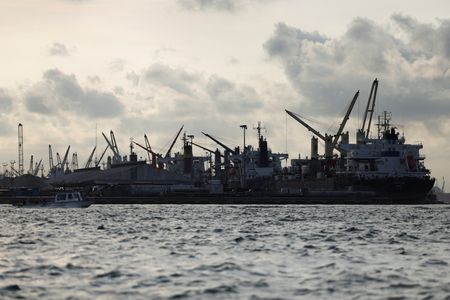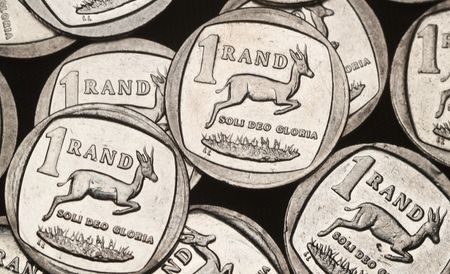By Stephanie Kelly
LONDON (Reuters) -Oil prices edged up on Thursday, taking a break after major losses in the previous session, as investors weighed concerns about global oversupply with looming sanctions against Russia’s Lukoil.
Brent crude futures rose 32 cents to $63.03 a barrel by 1130 GMT, after dropping 3.8% a day earlier. U.S. West Texas Intermediate crude increased 28 cents to $77 a barrel, after a decline of 4.2% on Wednesday.
“There should be considerable support to oil prices around $60/bbl, especially given there could be short-term disruption to Russian export flows once stricter sanctions kick in,” said Suvro Sarkar, DBS Bank’s energy sector team lead.
The U.S. has hit Lukoil with sanctions as part of its efforts to bring the Kremlin to peace talks over Ukraine. The sanctions prohibit transactions with the Russian company after November 21.
Still, investors kept an eye on oversupply concerns.
US CRUDE STOCKPILES INCREASE BY 1.3 MILLION BARRELS
U.S. crude stockpiles rose by 1.3 million barrels in the week that ended November 7, market sources said on Wednesday, citing American Petroleum Institute figures.
The U.S. Energy Information Administration is expected to release inventory data later on Thursday.
“We have seen a build in oil inventories across key on-shore locations across Europe, Singapore, Fujairah and the United States based on preliminary data last week,” UBS analyst Giovanni Staunovo said.
Prices fell more than $2 a barrel on Wednesday after the Organization of the Petroleum Exporting Countries (OPEC) said global oil supplies would slightly exceed demand in 2026, a further shift from the group’s earlier projections of a deficit.
“Recent (price) weakness seems to be driven by OPEC’s revision of supply-demand balance in 2026 in its monthly report, which confirms the group is now acknowledging the possibility of a supply glut in 2026, in contrast to its more bullish stance all along,” DBS’ Sarkar said.
OPEC said it expected the supply surplus next year because of the wider production increases by OPEC+, a group of producers that includes OPEC members and allies like Russia.
The International Energy Agency (IEA) raised its global oil supply growth forecasts for this year and next in its monthly oil market report on Thursday, signalling a bigger surplus in 2026.
The U.S. EIA also said in its Short-Term Energy Outlook on Wednesday that U.S. oil production is expected to set a larger record this year than previously forecast.
Global oil inventories will grow through 2026 as production increases faster than demand for petroleum fuels, adding to pressure on oil prices, the EIA added.
(Reporting by Stephanie Kelly and Trixie Yap; Editing by Thomas Derpinghaus, Clarence Fernandez and Ed Osmond)










